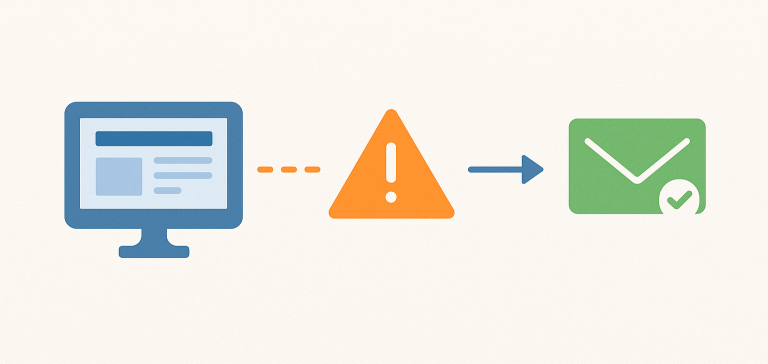Making sure that your website works well with search engines on the coding level right from the start.
Search Engine Optimization (SEO) is the process of increasing the visibility of a website on search engines by configuring your website to provide the sorts of things that search engines are looking for. When someone types a word or phrase into a search engine, it quickly looks through its directory of websites and displays sites in order of relevance to the word or phrase searched for. There are a number of things you can do on your website to ensure that your webpage displays well on search engines without using the Pay Per Click option.
SEO is a multifaceted and ever changing science. Every search engine has a different and closely guarded algorithm to determine relevance, but there are a few reliable design standards that will boost search engine rankings by providing the things that search engines are looking for.
Common seo design standards
- Relevant Content – Ensuring that your website has relevant content is very important as every search engine searches through content for key words. Properly naming and configuring your titles and headings goes a long way in this regard.
- Webpage meta tags – Every web page should have title and description tags in the code that are both strategic and relevant to the content on your site. This is further enhanced with JSON LD code which is designed to assist search engines in properly indexing your site.
- Image meta tags – Every image should have title, description, and alt tags as search engines also take the images on your website into account.
- Links – Search engines take links (both internally and externally) into account when ranking search results. Pages that are linked to by other pages may score higher.
- The URL – The wording used in your URL should be relevant and strategic. (This also encourages customers to click on your links once they see them.)
- Reputation – A website that has not been flagged as spam or irrelevant content will always do better in the long run. To gain and maintain a good reputation, make sure your content is relevant and don’t try to trick the system (keyword stuffing, link spamming, irrelevant keywords, and other ‘black hat’ SEO practices).
- Activity – Search engines appreciate fresh relevant content which can take the form of new pages, edits to existing pages, new images, or new blog posts associated with your website.
Different Levels of SEO
- Basic SEO – configuring your website to provide basic information about your business or service in a format that search engines will be able to easily read and using sensible meta tags and titles / headings. This is a service that Fireside provides for all new websites.
- Advanced SEO – Taking the time to do an SEO audit and extended keyword research. We drill down on who your demographic really is, what you really want them to do, how you stand out from the competition, and find the keywords that specifically target those demographics.
- Ongoing SEO – Providing Advanced SEO services for multiple campaigns or re-auditing and updating your SEO annually.
How is ROI measured?
Your Return on Investment will be tracked using tools like Google Analytics to analyze who has visited your website, how they got there, and what they did once they arrived. To calculate ROI you can filter who came to your website according to the SEO keywords and how many of those clients converted on your site and then subtract the cost of the SEO.
Example: The Slate Rock and Gravel Company has had SEO work done on his website that cost him $2000. In the first quarter they can see that people searching for the keyword ‘Quarry’ had 10 conversions totaling $5000, ‘Gravel’, had 20 conversion totaling $10000, and ‘Construction Supplies’ had 11 conversions totaling $5600.
(Revenue from SEO) – (Cost of SEO)
($5000 + $10000 + $5600) – ($2000)
$20600 – $2000
$18600
Generally businesses can expect the following additional benefits from using even basic SEO which are a little harder to quantify.
- Increase in High Quality Traffic – Google Analytics can track the ‘quality’ of traffic (people who are actually interested) on your website by analyzing bounce rate, time spent on your site, pages visited, links clicked on, etc.
- Increase in Conversions – A conversion is a goal you have for the traffic on your website and could be anything from clicking on a specific link, signing up for the newsletter, creating an account, or purchasing a product. Using free analytics software you can track both the conversions made on your website and how the customers making those conversions found your website. From this you can calculate revenue generated as a result of your SEO.
- Increase in traffic using non-branded keywords – By using a tool like Google Analytics you can track the traffic to your website and how they found it. To get an idea of the effectiveness of your SEO you’ll want to look specifically at related keywords that are non-branded.
- Increased inbound links – If other sites have started linking to you then this is excellent for your SEO ranking.
Who Benefits from SEO
Anyone that has a website and wants to get traffic to that website will benefit from basic SEO. This is something that every website should have as it provides the foundation for digital marketing as a whole.
SEO benefits you at every step of the Buyer’s Journey (see, think, do, and care) but is most effective at targeting the second and third step, (think and do). Potential clients who are either already thinking about your product or service or who are ready to make a purchase will be looking through search engines (as opposed to social media) to find you and they will typically look at a few results near the top of Google or Bing before making up their mind.
Businesses that provide a popular or essential product or service will benefit from advanced SEO. Example: when you are looking for a plumber it is usually because you have a big problem and you need a plumber ASAP, you go to big search engines like Google, not Facebook or YouTube.
Businesses that rely primarily on their website to drive sales benefit the most from ongoing and advanced SEO as being near the top of search engines will net you the most traffic to your website.
Businesses that are in a competitive field well benefit from SEO as potential customers will see them before their competition.
Image Source: www.Kaushik.net
Pros
- Taps into a large body of people who are already searching for what you are offering
- The foundation for all basic digital marketing
- Generates organic (free) traffic to your website
Cons
- Requires well thought out research into keywords
- Basic knowledge of coding is required
- Consistent analysis and revision required for best results
Sources
Search Engine Optimization, Wikipedia
How to Measure the ROI from SEO Campaigns, Unamo
What Is Search Engine Optimization / SEO, Search Engine Land
Prepping SEO for 2017: it’s all about the ROI, Search Engine Land




